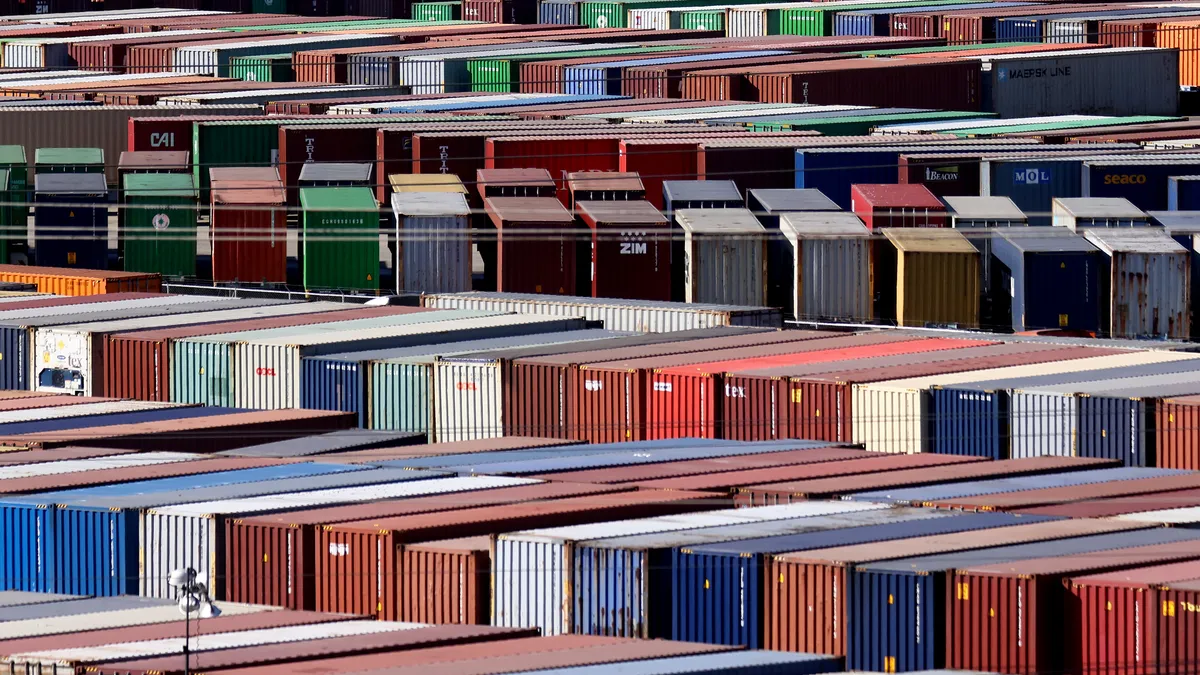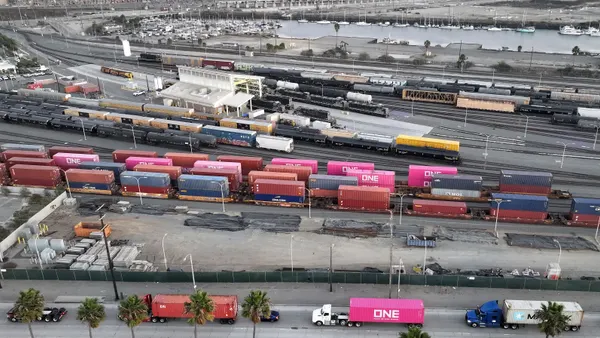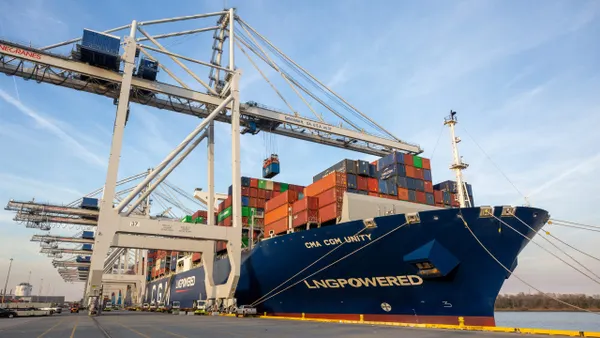Dive Brief:
- Lunar New Year is expected to "further disrupt" supply chains, two-thirds of respondents said in a global survey conducted by Container xChange.
- Almost half of those surveyed said the holiday would lead to longer transit times, reduced availability of containers and higher costs.
- It's common for factories to shut down every Lunar New Year, but this year will be different as China's "opaque" pandemic travel policies could bring added volatility, Container xChange CEO Johannes Schlingmeier said in a statement.
Dive Insight:
Lunar New Year is fast approaching on Feb. 1 but ocean supply chain constraints such as high Transpacific rates, COVID-19 outbreaks and port congestion continue to grow.
It's common for factories to shut down during the Lunar New Year, but with the ongoing challenges it will place additional limitations for some shippers.
In previous years, factory output in China during the Lunar New Year was affected by the number of workers who took extended holidays.
This year "it is unclear if China will allow millions of workers to travel for holidays due to strict COVID lockdown policies," said Schlingmeier. Even if people can travel, they may need to quarantine before returning to work.
The Beijing Winter Olympics this February and the potential for more power cuts could also strain output, according to the statement.
In response, shippers are planning ahead — 60% of respondents to Container xChange's survey said they placed orders early this year ahead of the Lunar New Year holidays. Some are also using shipper-owned containers, splitting multiple containers or buying equipment, according to survey responses.
Ordering early has been a common tactic for shippers looking to maintain inventory. Last year, Walmart boosted its inventory to navigate port delays and Urban Outfitters pulled forward orders and bought more raw materials to protect against supply chain backlogs.
Still, there may be a potential upside from reduced output in Asia.
"It could allow container lines to get vessel schedules in slightly better order which could improve the equipment availability situation globally and especially in China," said Schlingmeier.















